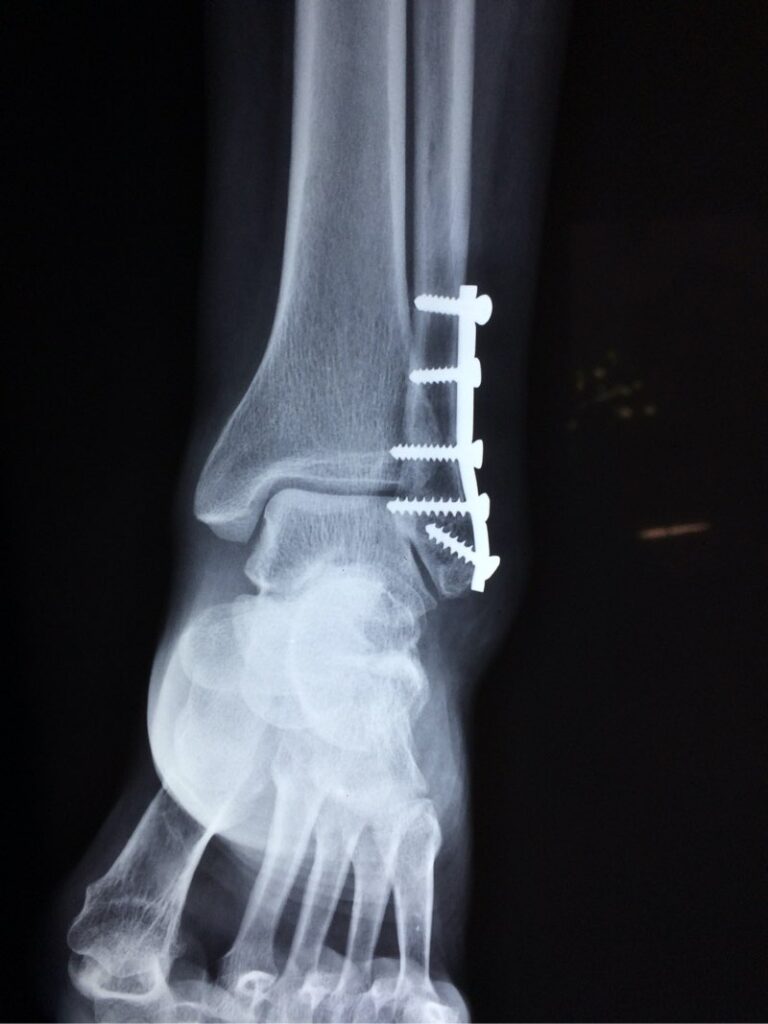Rheumatologist vs Orthopedist: What Kind of Doctor for Joint Pain Is Right for You?
You’ve been dealing with joint pain all over for as long as you can remember.
You suddenly started feeling a sharp pain in one of your joints.
Your joints ache when it rains or the weather changes.
Your joint never felt quite the same after that one injury… now you live with constant, nagging pain.
Your joint pain is so severe, it keeps you up at night.
Any of these sound familiar?
If so, it’s probably time to see a joint specialist. Before you book an appointment with a rheumatologist or orthopedic specialist, though, you should first see your primary care physician (PCP) for a general diagnosis. Even though some insurance providers don’t require a referral from a PCP to see a joint specialist, your PCP may recommend a completely different type of joint specialist than you might have consulted otherwise. Your PCP should be able to point you in the right direction based on your symptoms.
That said, it’s understandable that you want to be as informed as possible about your choice of doctor. The following information will give you a better idea about joint paint, its causes and what kind of doctor for joint pain may be right for you.
What Causes Joint Pain?
While there is an incredibly long list of things that could cause joint pain, the most common causes of joint pain are arthritis and orthopedic injury.
Arthritis Joint Pain
Just as there are a lot of possible causes of joint pain, there are many different types of arthritis. The most common form of arthritis, though, is osteoarthritis. Often called a “wear and tear” disease, osteoarthritis occurs when the cartilage in your joints gradually wears down. Without the cushion of cartilage in your joint, your bones grind against each other. On top of the loss of cartilage, osteoarthritis causes changes in the bone, inflammation and deterioration of other connective tissues within joints.
Common Osteoarthritis Symptoms
- Swelling
- Pain and tenderness
- Stiffness and loss of flexibility
- Bone spurs
- Grating sensation
Joint Pain from Orthopedic Injuries
Traumatic orthopedic injuries can leave a lasting impression – both on your psyche and on your joints. What most people don’t realize, however, is that even minor orthopedic injuries can result in lingering joint pain.
That’s because joints are more than just bones and cartilage – they are also made up of tendons, ligaments, muscles and small, fluid-filled sacs called bursae that also help cushion bones.
Whether you’ve suffered a traumatic injury in the past, have an overuse injury or think you “tweaked” something, your joint pain could be caused by an injury to anyone or more components in your joint. Two common orthopedic conditions that cause joint pain are bursitis and tendinitis.
Rheumatologist vs Orthopedic Specialist
Per the American College of Rheumatology, “A rheumatologist is an internist or pediatrician who received further training in the diagnosis (detection) and treatment of musculoskeletal disease and systemic autoimmune conditions commonly referred to as rheumatic diseases. These diseases can affect the joints, muscles, and bones causing pain, swelling, stiffness, and deformity.”
You might need to see a rheumatologist for joint pain if:
- You have joint pain all over or pain in multiple joints
- You’re experiencing new joint pain that isn’t associated with an injury
- You have joint pain and psoriasis
- You have joint pain and morning stiffness that includes fever, fatigue, chest pain or a rash
- You’ve experienced unexplained, ongoing symptoms including fever, sweats or weight loss
- You are experiencing joint pain after a tick bite
Orthopedic specialists, also called orthopaedic doctors or orthopaedic surgeons, also treat the musculoskeletal system, which is why it can be unclear which doctor to see for joint pain. Orthopeaedic doctors, however, focus on bones, joints, ligaments, tendons and nerves, as well as the conditions that affect them.
You might need to see an orthopedic specialist for joint pain if:
- You have joint pain that started after an injury
- Your joint pain is so severe it is limiting function or daily activities
- You have moderate to advanced arthritis
- Your hip or knee pain has become progressively worse and worse while bearing weight
- Your previous or current treatment for joint pain was unsuccessful
If you are experiencing joint pain and have questions about what doctor you should see for treatment, please feel free to contact us. We’d be happy to help point you in the right direction for proper treatment.


2 Comments
Permalink
Hello, I have severe joint pain in my right knee, left hip, left shoulder, and both feet. Currently I do not have a PPC. I am on Medicare and have TriCare for Life. I don’t know what kind of doctor to contact.
Thank you,
Permalink
Edie,
I am sorry you are experiencing pain.
If this post didn’t help you narrow down which type of doctor you want to contact first, a Rheumatologist or Orthopedist, then I highly recommend starting with a Primary Care doctor.
Go through our list above one more time and see if you fall in either category more. If not, a PCP should be able to point you in the right direction based on your symptoms. Even if you don’t have a PCP you see regularly, having a consult with one could prove to be highly beneficial. Reach out to your insurance company for a list of in-network providers in your area.